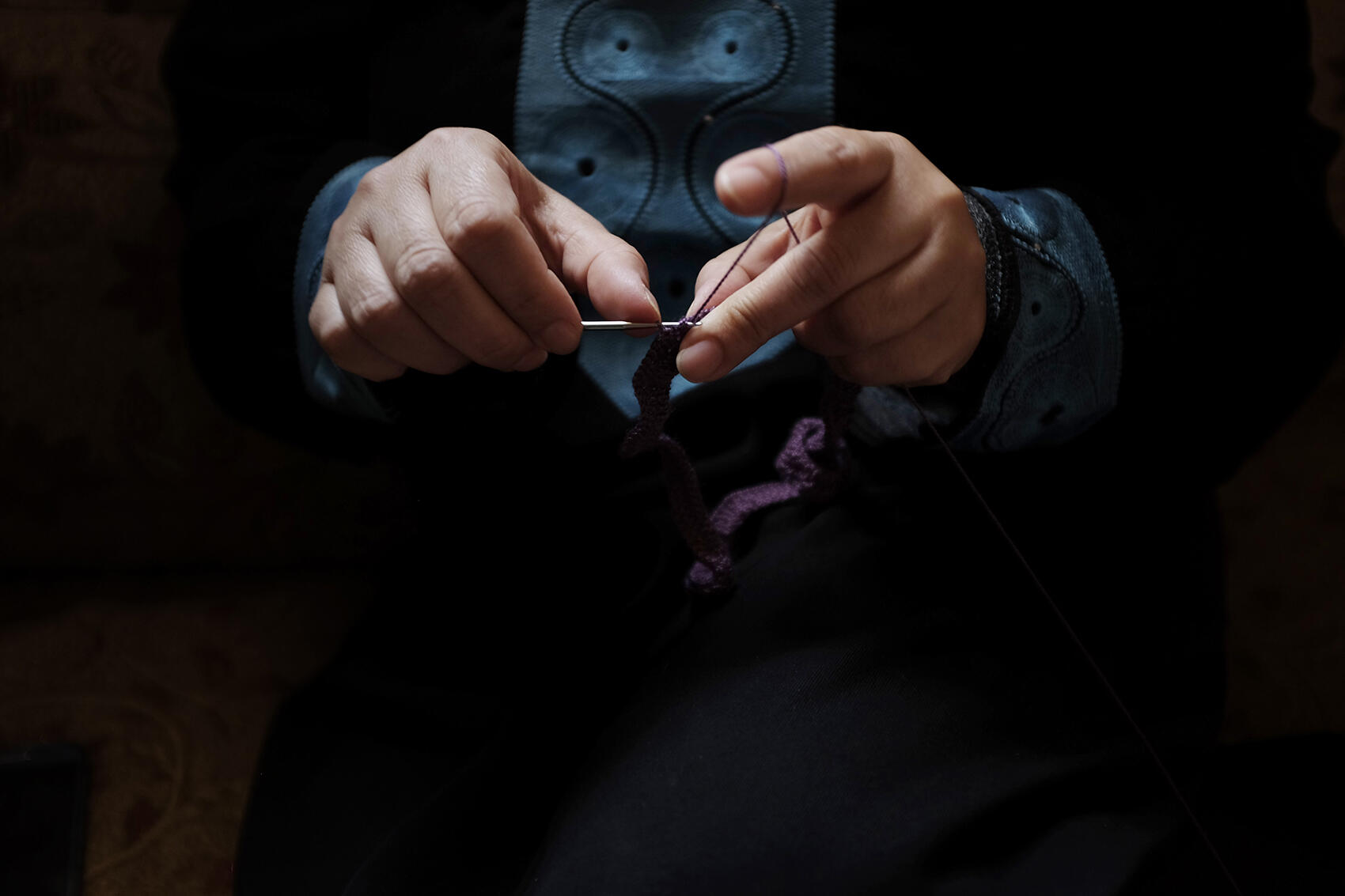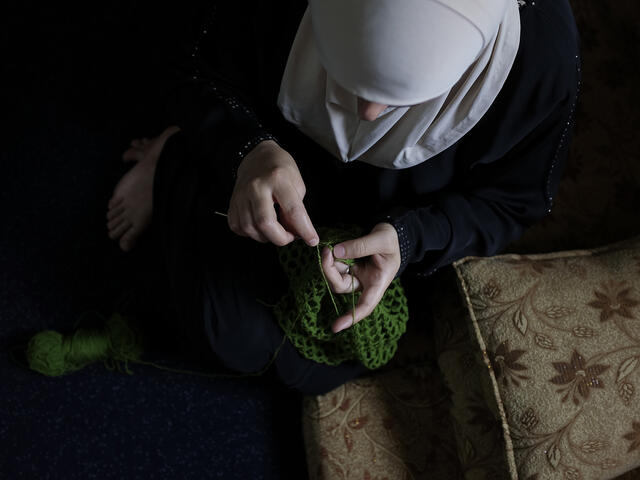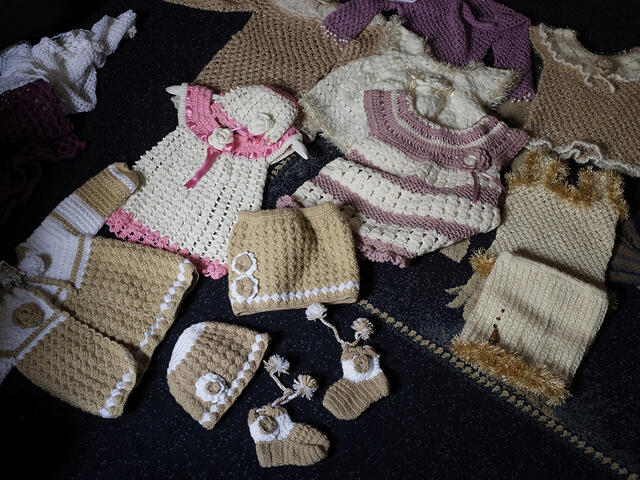
The knitters: crafting confidence for the future
After fleeing Syria, Kholood and her cousin Naheda started a handmade clothing business in Jordan.

After fleeing Syria, Kholood and her cousin Naheda started a handmade clothing business in Jordan.
Forced by war to abandon their businesses and former lives, Syrian women are creating new opportunities for themselves and their families in the countries where they’ve found refuge. Meet five resilient and ambitious entrepreneurs in Jordan in our new multimedia series, Starting up again: Syrian entrepreneurs in exile.
Name: Kholood*
Age: 40
From: Dara’a, Syria
Currently lives in: Ramtha, Jordan
Startup: Garment business
Goals: Make and sell knitted clothing with the aim of building a business and achieving financial independence.
Khlood shares her story:
When the conflict in Syria escalated, there were continuous arrests, sometimes at 6am. Armed men would raid our houses and my 19-year-old son, who has cerebral palsy and paralysis, would be very scared. His condition started getting worse because of these incidents, so we decided to leave the country. I left with my children; my husband was already living and working in the Emirates.
Our financial situation in Syria had been good. My brother owned a shop, which our neighbors loved. Naheda, my cousin, also had a good life. Her family owned a grocery store, while she had an embroidery business that generated good income. But when the war started, their home was badly damaged. They kept fleeing from one town to another until they, too, decided to leave the country.

We all came to Jordan in April of 2013. We settled in a village, but when my aunt fell and broke her hipbone, things became difficult since there are no doctors or pharmacies nearby. We would have to go to another village to get medicine, but without cars, it was difficult. That’s when we decided to move to Ramtha.
When my son and I fell ill in 2014, we went to the IRC health clinic in Ramtha, where they told us about the recreational classes at their women’s center. Naheda and I went to the center and felt very comfortable. We signed up for crochet and knitting sessions, but I wasn’t interested at first; I went to support Naheda. But session after session, I realized how much I enjoy knitting. Going out of the house and socializing with the women in the class helped improve my state of mind.
The classes really helped Naheda perfect her techniques and the other ladies there started buying pieces from her. I also sold some knitted dresses at the center. Another woman at the center told us that she could display our work in the market. We gave her some items and she sold them immediately. Usually, we sell our clothing to friends, family, acquaintances and neighbors.
IRC staff noticed our work and encouraged us to sign up for the small-business training course. I received $700 and Naheda received $565 to start the business.

The first piece of advice we received—stay persistent and stick to your goals! I’m the kind of person who doesn’t believe I can achieve anything. Naheda, on the other hand, is very determined. If she wants to learn something, she will work tirelessly to learn it. Her determination rubbed off on me, so I overcame the fear of failure.
We also learned that the quality of our products should always be high. Don’t buy low-quality materials just because they’re cheaper. With high-quality products, we will attract customers.
The cost of the materials ranges from 5-10 JOD ($7- to $14), depending on the piece. Each piece takes around three or four days to complete. Our prices are lower because we’re still trying to attract customers.
Women aren’t meant to stay alone in the house; everybody has to have something to do, something that can make her feel valuable. Now I feel like there’s something I can call my own. I’m working, producing, and people are buying my products.
*Names changed for privacy reasons
Learn more